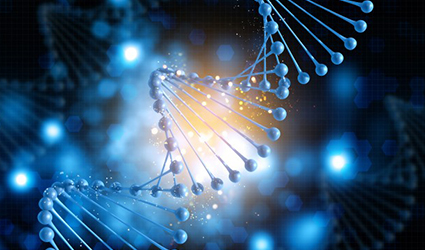Genetic Disorder Cured in Utero Using Gene-Editing Technique
July 19, 2018
Source: drugdu
 887
887

In what seems to be a first of its kind research, Carnegie Mellon University and Yale University researchers have successfully cured a genetic condition in a mouse model with a gene editing technique. The findings of the study showcase a potential new opportunity for further research into treating genetic disorders in utero.
"Early in embryonic development, there are a lot of stem cells dividing at a rapid pace. If we can go in and correct a genetic mutation early on, we could dramatically reduce the impact the mutation has on fetal development or even cure the condition," said Danith Ly, professor of chemistry in Carnegie Mellon's Mellon College of Science.
A peptide nucleic acid (PNA) based gene editing technique was used by the scientists. The PNAs were specially produced by Ly at Carnegie Mellon's Center for Nucleic Acids Science and Technology (CNAST).
An FDA-approved nanoparticle is used in this technique to carry PNA molecules paired with donor DNA to a specific genetic mutation. This PNA-DNA complex identifies the mutation and the PNA molecule binds to the DNA dividing its two strands. The donor DNA binds with the erroneous DNA and activates the cell's DNA repair pathways, thereby correcting the error.
The researchers could efficiently correct 6 percent of the mutations with only one injection of the PNA during gestation. The 6 percent correction brought striking relief in the mice's symptoms of beta thalassemia and the mice could be labeled as cured.
"The PNA technique is more ideal for therapeutics. It doesn't cut the DNA; it just binds to it and repairs things that seem unusual. We looked at 50 million samples and couldn't find one offsite error when we used our PNA gene editing technique." said Ly.
By DduRead more on
- Things to Know before Buying Newborn Baby Incubators March 31, 2022
- Highly Resistant Food Poisoning Bug Responds to Antibiotics September 6, 2018
- Smartphone Based Diagnosis to Identify Mosquitoes Transmitting Infection September 5, 2018
- 3 Natural Plant Extracts Manufacturers on Drugdu.com September 4, 2018
- Shenzhen Chuanggan – Health Assessment Facility Supplier September 4, 2018
your submission has already been received.
OK
Subscribe
Please enter a valid Email address!
Submit
The most relevant industry news & insight will be sent to you every two weeks.



